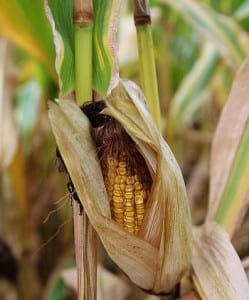Researchers study how to convert wet farm waste to energy
January 8, 2015Canadian researchers have developed a pressure cooking method to create biofuels from farm waste.
Researchers from the University of Guelph are studying how to create biofuels via a waste to energy method that involves the use of farm waste, or, more particularly, what is referred to as “wet” waste, which is considered to be difficult to use.
Generating energy from wet waste has always been a struggle for scientists.
Wet and green waste includes materials like manure, tomato vines, and corn husks. The trouble with this waste, in comparison to dry leftovers, like sawdust and woodchips, is that it often starts to decompose before it arrives at its intended destination. This makes the dry variety far easier to convert into power, since it doesn’t breakdown quickly.
However, according to the preliminary study from the Guelph researchers, they have developed a relatively simple method for transporting this waste and generating energy from it. The solution is pressure cooking.
The lead researcher, Animesh Dutta, an engineering professor and the director of the Bio-Renewable Innovation Lab at the University of Guelph, said that what the team found was that, in a lab setting, biofuels can generate the same amount of power as coal. The research findings were published in the journal Applied Energy.
The next step is to take the waste to energy discovery out of the lab.
 Once it is cooked, the farm waste yields compact and becomes material that can be easily transported without breaking down so it can be utilized in plants that produce energy from waste.
Once it is cooked, the farm waste yields compact and becomes material that can be easily transported without breaking down so it can be utilized in plants that produce energy from waste.
Dutta explained that “What this means is that we have a resource in farm waste that is readily available, can produce energy at a similar level to burning coal, and does not require any significant start-up costs.” Dutta added that they are taking what is currently worthless waste from farms that farmers have to pay to remove, and providing an opportunity that not only helps the environment, but can also make money.
The researchers have been able to produce small amounts of power from the biofuels they created in their lab, but the next step is to take it beyond the lab. An example of how this might be made possible is large pressure cookers could be set up near farms, which cook waste that could be transported to power plants. Dutta has said that government ministries and industry partners are interested in the technology and that “Essentially, the agri-food sector could power the automotive industry.”
According to the researchers, transforming wet farm waste to energy has not only become possible, but it makes economic sense. Depending on funding, they expect that this system may be up and running in “five to seven years”.

 HFN News is your leading source for fresh hydrogen and renewable energy updates. Amid the fast-paced growth of hydrogen companies, we provide top-notch news and insights about this exciting sector. Our coverage spans from hydrogen cars to global sustainable initiatives, and we highlight the latest in green jobs and developing hydrogen hubs. We invite you to share your local hydrogen news and explore today’s renewable energy job listings on our site. Thanks for choosing HFN News as your trusted guide to the hydrogen and renewable energy world!
HFN News is your leading source for fresh hydrogen and renewable energy updates. Amid the fast-paced growth of hydrogen companies, we provide top-notch news and insights about this exciting sector. Our coverage spans from hydrogen cars to global sustainable initiatives, and we highlight the latest in green jobs and developing hydrogen hubs. We invite you to share your local hydrogen news and explore today’s renewable energy job listings on our site. Thanks for choosing HFN News as your trusted guide to the hydrogen and renewable energy world!